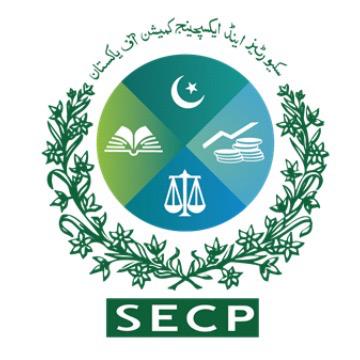UIC accuses regulator of flouting stay order, demands punitive action.
Press release controversy and ‘harassment’ deepen reputational harm.
Staff Report
ISLAMABAD: The United Insurance Company (UIC) has initiated contempt proceedings against the Securities and Exchange Commission of Pakistan (SECP) in the Islamabad High Court (IHC) alleging that the regulator has violated explicit judicial orders and continued to obstruct company operations despite a court-mandated stay.
The respondents in the contempt petition include Akif Saeed, Chairman of the SECP, Director Nasir Askar, Executive Director Asif Jalal Bhatti, Joint Director Muhammad Tanweer, and Additional Joint Director Nadeem Rafique.
The petition marks a significant escalation in the legal battle that began when the IHC suspended SECP’s controversial orders dated May 20 and June 18, which had barred UIC from conducting its guarantee business. The court deemed the enforcement action prima facie unlawful and specifically warned SECP against harassing the petitioner under any pretext.
Despite this stay, SECP failed to comply with the ruling in both letter and spirit. A press release announcing the enforcement action remains active on SECP’s official website, misleading clients into believing that the regulator’s punitive measures are still in effect.
According to UIC, this ongoing publication has caused substantial reputational and financial harm, with clients increasingly reluctant to engage with the insurer.
Moreover, the petition said that SECP officials have continued to harass UIC’s management by demanding documents beyond the scope of the original inspection period, in apparent defiance of judicial instructions.
The company argues that this behavior amounts to a calculated attempt to undermine court authority and cripple business operations through indirect coercion.UIC’s legal counsel argued that SECP officials have deliberately circumvented the IHC’s directives, constituting a willful defiance of judicial authority.
The petition called for strict punitive action against the officials concerned. The IHC has admitted the contempt plea and fixed July 18 as date for heading—a vital step signaling the court’s recognition of UIC’s grievance as a serious legal claim. The SECP has been directed to submit a comprehensive reply, further intensifying scrutiny of the regulator’s conduct in the high-profile insurance case.
SECP’s May 20 enforcement action, which was based on unverified complaints and challenged by UIC as procedurally flawed, triggered significant operational disruption. The company maintains that the regulator acted without proper due process and prematurely publicized its actions through media and online channels, amplifying reputational damage.
The High Court’s intervention has drawn attention to broader concerns about regulatory overreach in Pakistan’s financial sector. Legal and business circles warn that unchecked or arbitrary enforcement can destabilize investor confidence and compromise institutional legitimacy, particularly when state bodies appear to disregard judicial instructions.
UIC, one of Pakistan’s largest insurers, reported gross written premiums of Rs 13 billion for 2024, with claim disbursements of Rs 4.5 billion, and operations spanning hundreds of branches and thousands of employees nationwide. The firm holds an AA+ credit rating and has maintained a leading position in the sector for over two decades.
Legal experts suggest this case could establish vital precedents concerning the limits of regulatory authority and the enforceability of judicial oversight. The petition also raises pressing questions about due process, institutional accountability, and whether financial regulators can be effectively restrained from overstepping their legal mandates.
As the IHC prepares to evaluate the SECP’s response, the case is likely to become a touchstone for how Pakistan balances regulatory enforcement with judicial integrity and business continuity. The outcome could reshape the enforcement landscape across the country’s financial and corporate sectors.

